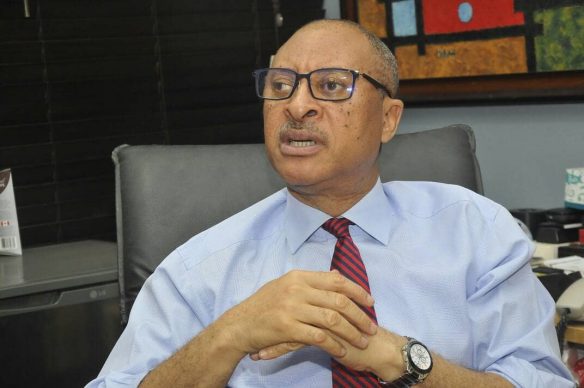Prominent political economist and former presidential aspirant, Prof. Pat Utomi, has voiced serious concerns regarding the alarming levels of poverty in Nigeria, which he described as “shameful.” During the launch of ‘The New Tribe’ at a Global Village Square Town Hall meeting held at Four Points By Sheraton in Victoria Island, Lagos, Utomi lamented that Nigeria has a higher number of impoverished individuals than India, despite India’s population being seven times larger. He remarked on the irony of a nation with such vast potential celebrating 64 years of independence while still grappling with immense poverty. He highlighted findings from a Brookings study that ranked Nigeria above India in terms of absolute poverty, urging Nigerians to reflect on the paradoxical situation in which the country’s wealthiest coexist alongside its poorest.
In his address, Utomi identified a significant deterioration of cultural values in Nigeria as a contributing factor to its ongoing crises. The collapse of shared values, he argued, has led to a decreased sense of shame among citizens and an embarrassing political class. He emphasized that progress is intrinsically tied to cultural and societal values, stating, “Fundamentally, progress is dependent on culture, on your values.” These remarks underscore his belief in the necessity of a cultural renaissance to address Nigeria’s profound social and economic challenges. By recognizing the gravity of moral decline, he advocated for a collective effort among citizens to engage with and develop actionable solutions to the country’s systemic issues.
Furthermore, Utomi critiqued Nigeria’s failing institutions, particularly emphasizing the justice system, which he described as lacking credibility on a global stage. He pointed out that potential investors regard the Nigerian judiciary skeptically, often dismissing it as ineffective. This skepticism, he argued, poses significant obstacles for the country’s economic growth and discourages foreign investment, leading businesses to consider other nations with more reliable legal systems despite potentially lower returns. Utomi’s observations echo a broader concern about governance and institutional integrity, suggesting that restoring trust in legal frameworks is vital to creating an attractive environment for investment and fostering sustainable development.
The ‘New Tribe’ initiative aims to unite individuals with shared progressive ideas to drive development outside of traditional government frameworks. Utomi articulated the critical role of the Nigerian diaspora in this transformative effort, drawing comparisons to nations like Japan, India, and China, which successfully leveraged their diasporas for development. He highlighted the initiative’s goal of cultivating a spirit of ‘Ubuntu,’ encapsulating the philosophy that mutual support and shared humanity drive communal progress. This emphasis on collective responsibility and interconnectedness reflects a yearning for a more cohesive national identity capable of addressing Nigeria’s multifaceted problems.
One of the primary focuses of the ‘New Tribe’ initiative is to enhance health services in Nigeria by utilizing the expertise of medical professionals residing abroad. This includes initiatives aimed at improving first aid training and emergency care, vital components in elevating the standard of healthcare in the country. By engaging the diaspora’s skills and knowledge, the plan seeks to foster practical, on-the-ground improvements in health services, which have been a chronic issue in Nigeria. Such efforts reveal the initiative’s broader commitment to harnessing available resources for immediate tangible impacts on the country’s social infrastructure.
The launch event featured a range of distinguished speakers, including human rights lawyer Femi Falana, Executive Director of Enough is Enough Yemi Adamolekun, and former Commonwealth Secretary-General Chief Emeka Anyaoku, all of whom reinforced the call for ethical governance and accountability. Soji Apanpa, the Founder and Executive Director of the Convention on Business Integrity in Nigeria, underlined the significance of public accountability, urging citizens to uphold ethical standards in their endeavors. The engaging discussions culminated in a Memorandum of Understanding (MoU) between ‘The New Tribe’ initiative and three state governments, with the intent to enhance emergency services, marking a tangible step toward improving Nigeria’s healthcare framework. This collaborative approach signifies hope for a renewed commitment to addressing pressing national issues and transforming Nigeria into a more equitable and prosperous society.














